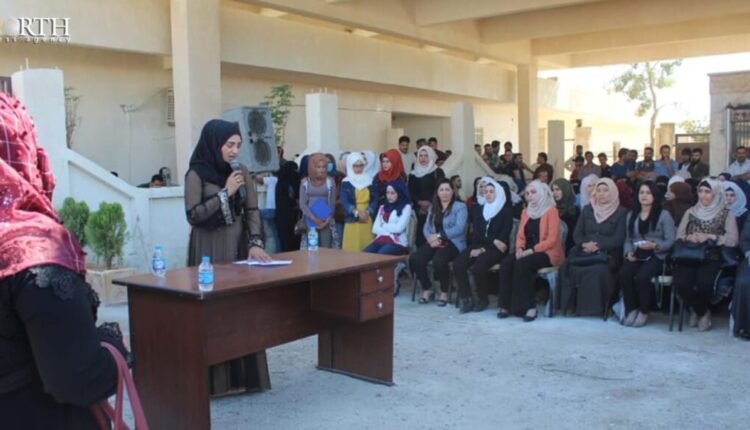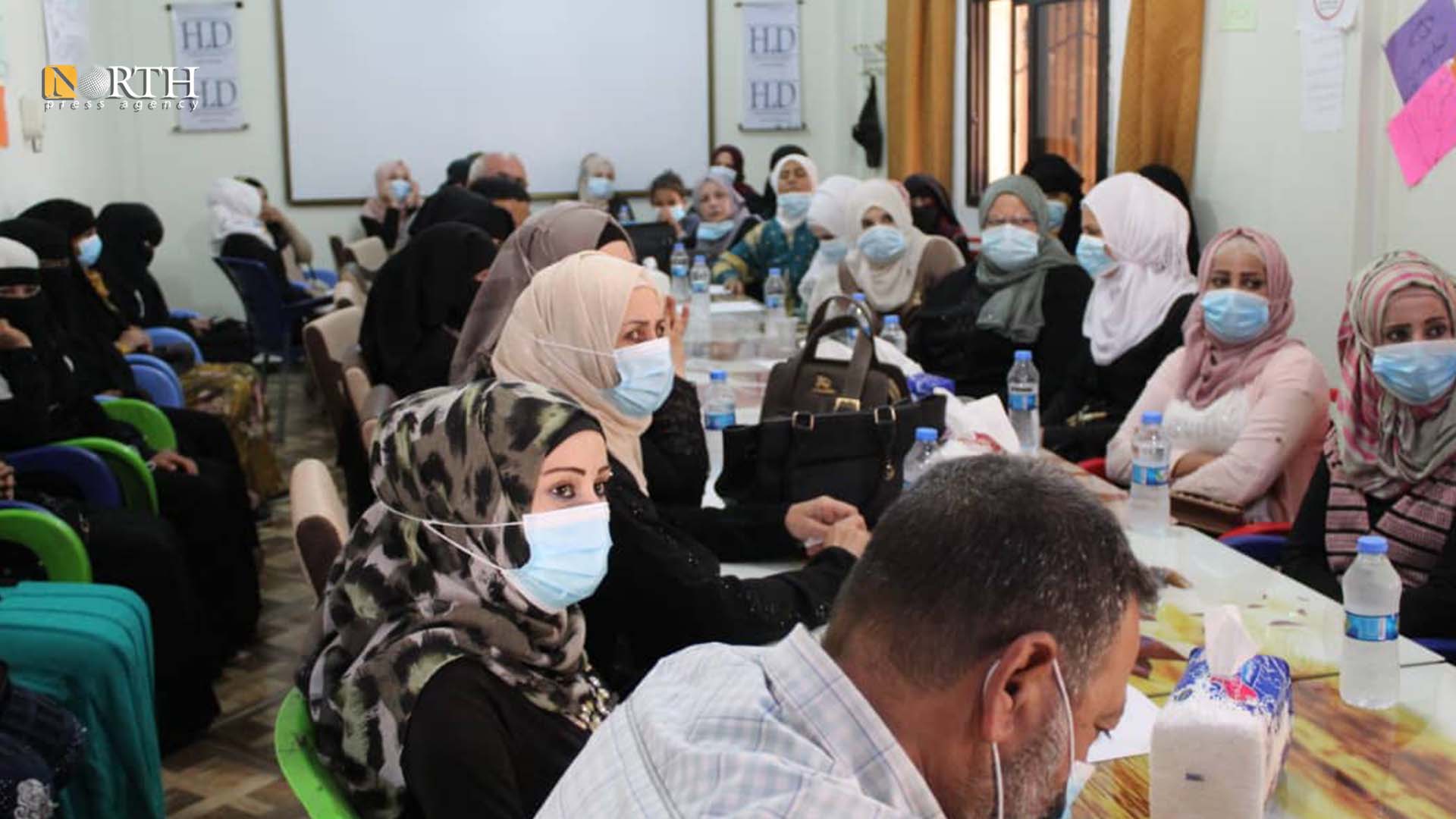
DEIR EZ-ZOR, Syria (North Press) – “Women are worthless and persecuted,” Alia said when asked about how women were treated under the Islamic State’s (ISIS) rule in Deir ez-Zor, eastern Syria.
Alia al-Rajab, 38, from the village of al-Saawa, 16 km west of Deir ez-Zor, said that life was “extremely difficult” for women during ISIS’ rule in Deir ez-Zor.
ISIS controlled Deir ez-Zor for six years until its defeat by the Syrian Democratic Forces (SDF) and the US-led Global Coalition at its last stronghold, in the town of Baghouz, in March 2019.
During its rule, the group committed crimes against humanity, human rights violations, and demeaned women, who they considered the weakest link.
Al-Rajab said that women were deprived of their basic rights to education, travel, work and choosing a partner.
Women’s jobs were limited to housework and some professions like nursing and giving religious lessons to girls in mosques.
According to al-Rajab, ISIS discriminated against women, mistreated them and looked down upon them.
The situation took a turn after the Autonomous Administration of North and East Syria (AANES) was established. The AANES helped women to realize their rights. Women in the eastern region had always struggled due to traditions and customs and the deeply-rooted culture of shame.
The AANES was first formed in 2014 in the Kurdish-majority regions of Afrin, Kobani and Jazira in northern Syria following the withdrawal of the government forces. Later, it was expanded to Manbij, Tabqa, Raqqa, Hasakah and Deir ez-Zor after the SDF defeated ISIS militarily there.
Women in Deir ez-Zor were crushed under the pressure of tradition and customs. It was difficult to overcome them as the community broke down those who attempted to interfere or go beyond the limits set for women.
Sabah al-Yassin, 44, a teacher from the village of Meheimideh, 12 km west of Deir ez-Zor, said she experienced many hardships until she got her parents’ permission to complete her education.
She added that ISIS’ rule for women was like spending time in prison. They were ill-treated, forced to marry at a young age, and deprived of freedom.
Additionally, al-Hisbah (the Morality Police) would chase women, punish and beat them for the way they dressed, and come up with new ways to intimidate them.
Al-Yassin believes the situation for women radically changed under the rule of the AANES, as it supported women, granted them their rights, and invited them to participate in different aspects of life.
Rim al-Adil, 33, from the village of Hamar al-Kasra, 20 km west of Deir ez-Zor, fully agrees with al-Yasin. For her, the AANES opened wide doors for women. She presented her job in media as an example, since working in that field was only allowed for men for many decades.
The journalist sees that the AANES gave women the freedom to pursue many careers, which encouraged them to break with the limits imposed by tradition.

During the AANES’s rule, women “have been able to take a socially and politically high status, enabling them to be leading politicians and decision-makers through the system of the co-chairs,” she said.
Fatima al-Hussein, co-chair of Women’s Committee in Deir ez-Zor, affiliated with the AANES, said that women were pushed to the sidelines in Deir ez-Zor for decades. It was not limited to ISIS, as traditions and customs were also harsh and hard to overcome.
She noted, “Women were given a high place in society. The way was open for them to participate in social and practical life” after the AANES’ establishment in Deir ez-Zor.
“Over the past years, the Women’s Commission has fully supported women and worked to rehabilitate women’s potential, in addition to setting up several small projects to reintegrate women in the field of business and gave them all their rights,” al-Hussein added.
